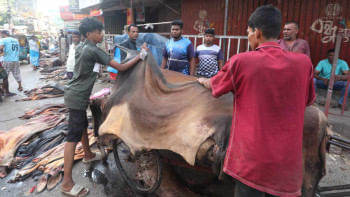Violated and shamed: Sexual misconduct in Asia
In numbers
35% women in world experienced physical or sexual violence
120m girls in world experienced forced sex or other sexual acts
79% Indian women experienced some form of sexual harassment in public
84% Brazilian women sexually harassed by cops
64% UK women experienced sexual harassment in public
1 in 4 women face sexual assault during their lifetime in North America
1 in 3 women experience physical or sexual violence by an intimate partner during their lifetime in Zimbabwe and Rwanda
37% Arab women experienced some form of violence in their lifetime
As more victims step out to tell of sexual harassment in the United States and Europe, The Straits Times Asian bureaus look at how the region perceives this rarely publicly-discussed issue.
It has been called the "Weinstein Effect".
Since the Hollywood scandal involving movie mogul Harvey Weinstein broke a month ago, and woman after woman - numbering about 100 now - stepped out to accuse him of sexual impropriety, the storm of allegations has not only engulfed various quarters in the West, but also swept through parts of Asia.
Last week, it was the Philippine arts and entertainment industry that got the bad rap, after several women accused two artists as well as members of popular bands of sexual misconduct.
Adrienne Onday, 19, a sociology student and activist at the University of the Philippines, started a Twitter thread to expose what she calls the "disgusting underbelly" of the Philippine music scene.
Onday said she had received sexually suggestive emojis by indie band Jensen And The Flips vocalist Jensen Gomez, 26. Young women responded to her post swiftly with similar allegations, although most wanted to remain anonymous.
One of them accused Flips guitarist Sammy Valenia, in his 20s, of trying to force himself on her inside a cab. "He kept trying to kiss me, even though I was pushing him away. But he was heavy, and I was so small," the woman wrote.
Valenia owned up to it in a Twitter post, saying he was "really sorry".
Members of two other bands, Sud and MilesExperience, were also accused of sending sexually explicit emojis, badgering minors for nude photos, and making misogynistic remarks.
Concert organisers have since dropped both Jensen And The Flips and Sud from their line-up for a year-end music festival and a university concert.
Similar cases have surfaced in the arts industry. A complaint has been filed against Paris-based Filipino sculptor Gaston Damag, 57, for allegedly groping a 22-year-old artist, while at least 11 women have accused digital artist Justin Remalante, 29, of sending them sexually explicit text messages.
Under-reporting
Women's rights activists say while it is heartening that this growing movement in the West of victims calling out their harassers has reached this part of the world, the majority of sexual misconduct cases - including rape - still go unreported.
"Many women, rather than relive what happened to them when they report, just keep quiet. Many also think domestic violence is part of any relationship, so they don't report it," said Joms Salvador, secretary-general of Manila-based women's group Gabriela.
Only one in three women reports cases of spousal abuse, rape, incest or sexual harassment, and most cases are dropped, she said.
This happens even though police precincts have "women's help desks", and some cities even have ordinances that penalise catcalling in public, though enforcement has been half-hearted.
Based on the latest National Demographic and Health Survey done in 2013, a woman in the Philippines falls victim to domestic violence every 16 minutes, and a woman is raped every 53 minutes.
Police records show that the number of rape cases nearly doubled from 5,132 in 2010 to 9,875 in 2014.
Violations of Republic Act 9262, which include spousal abuse, child prostitution, threats and concubinage, spiked from some 10,000 in 2010 to more than 31,900 in 2014.
#MeToo
Even though the momentum of reckoning in the United States and Europe has gained some modest traction in Asia, poor legislation and enforcement, as well as fear - of damage to reputation, losing one's job, being blamed - keep victims quiet.
When Angeline Tan Siew May, 28, was asked by a potential employer to meet over coffee for a "pre-interview session" in Kuala Lumpur in 2011, she said yes immediately.
Unemployed for more than two months after graduating from university, Tan, then 22, was eager to impress the head of a department at a well-known publishing company and land the corporate communications job.
"After talking for a while, he said 'I can give you the job and we can skip the whole interview process if you follow me back to my place after this', while placing his hand over my right thigh," recalled Tan of the encounter at a cafe.
"I was stunned, I didn't know what to do. I badly needed the job but had to forgo it. So yes, #MeToo," she said.
The #MeToo hashtag has gone viral on social media since American actress Alyssa Milano made a rallying cry for women to speak up about their sexual harassment experiences to highlight the magnitude of the problem.
Many Malaysians - women and men - have since joined in, recounting on Facebook and Twitter their experiences of being catcalled, molested and even raped.
Six years since the rude encounter, Tan said the memory still lingers. "It left a huge impact on my life, I'm still traumatised by it. I tried talking to a friend about it, but instead was partially blamed for meeting the man in a non-professional setting."
There are no specific laws against sexual harassment in Malaysia. Women's rights activist Ivy Josiah said the culture of victim-blaming has also hindered victims from confronting their harassers.
"People don't ask why these harassers do it, but prefer to blame and shame the victims," she said. "Often, the women - and there are men too - cannot afford to lose their jobs, feel embarrassed and even shame, thinking no one will believe them as the perpetrator could be well-known and respected by society."
Political connections
That was the case for freelance Japanese journalist Shiori Ito, 28, who went public in May this year, claiming she was raped by the former Washington bureau chief of Japanese news network, TBS News.
She alleged that Noriyuki Yamaguchi, 51, had attacked her in a Tokyo hotel in 2015. He has close ties with Prime Minister Shinzo Abe, whom he reportedly has on speed dial.
The police dropped the case a year after Ito made a criminal complaint in 2015, citing "insufficient evidence".
Her appeal was also thrown out, leading to allegations that Yamaguchi got off the hook because of the intervention of top police officials.
This high-profile case - a rarity in Japan where victims of rape or sexual harassment almost never go public - may shift the needle a little, but is unlikely to spark momentous change, said sociologist Emi Kataoka of the Komazawa University in Tokyo.
In the latest national crime white paper released on Friday, the police classified 989 cases of rape in 2016, in a country of 127 million - a 15.3 per cent decrease from 2015, and a continual downward trend from 2004.
There were 6,188 classified cases of sexual assault in 2016, down 8.4 per cent from the previous year.
When questioned about possible under-reporting at a news conference, a Ministry of Justice official would only say: "What you're alleging as under-reporting is outside the scope of today's conference."
Dr Kataoka put the reluctance to report such cases on culture. Japan not only remains a male-dominated society, it is also one that values homogeneity and synchronisation with one's surroundings.
"Not only are women generally still regarded as subservient to men, they are required to be in tune with their families and people around them," said Dr Kataoka.
"Should they go public with sexual harassment or rape claims, it becomes an 'inconvenient fact' and they will be judged by their families and people around them."
Getting the authorities to recognise a case is also highly onerous, as the police will not entertain a complaint unless there is "clear evidence", said Dr Kataoka.
Since going public with her story, Ito says she has been subjected to harassment and name-calling ("attention-seeking w****").
In Japan, taking upskirt videos and groping on trains remain the more pervasive forms of sexual harassment. The latter prompted train companies to introduce women-only passenger cars from 2001.
"Where does it go from here?"
Much like Japan, India's patriarchal and conservative norms have conditioned women into tolerating sexual harassment and even rape.
Social activists say victim-shaming remains a real and widespread problem.
Emboldened by the #MeToo campaign, some Bollywood actresses have also come forward with their stories, although they did not name anyone.
In an an interview with Mumbai Mirror, Bollywood actress Swara Bhaskara, 29, revealed that she was harassed by a film director early in her career. "He started talking about love and sex, and one night, he arrived in my room, drunk and asking to be hugged. It was scary," she told the newspaper.
The harassment, she said, stopped after a complaint to the executive producer.
In a survey by Michigan State University last year of 1,400 men and women in the capital city of New Delhi, 40 per cent of women polled said they have been sexually harassed in a public place such as a bus or park in the past year, with most of the crimes occurring in the day time.
Some 33 per cent of women have stopped going out in public and 17 per cent have quit their jobs rather than face harassment.
Sexual crime was thrust into the spotlight in India following the fatal 2012 gang-rape of a physiotherapy student in a moving bus in the capital city. The victim died of her injuries in a Singapore hospital.
The crime triggered street protests, forcing the government to amend laws, including introducing the death penalty for serial rapists.
Yet, activists said implementation of the laws remains lax and social taboos against women speaking out continue to exist.
"It (#MeToo) has had some impact and any conversation around sexual harassment is good, but I think these conversations come and go. The question is, where does it go from here," said Kavita Krishnan, secretary of the All India Progressive Women's Association.
Sociologist and women's rights activist Ranjana Kumari said: "I think the silence has not broken in India in the way we saw it globally."
But she noted the steady increase in the reporting of rape cases since 2012.
Statistics from the National Crimes Record Bureau show that the number of rape complaints went up from 24,923 in 2012 to 34,651 in 2015. In 2015, 130,195 cases of sexual offences - including rape, attempt to commit rape, assault on women - were reported.
There have also been attempts to make cities safer for women. Just last Wednesday, the federal home ministry announced that it had asked eight metros - Delhi, Mumbai, Kolkata, Chennai, Ahmedabad, Bengaluru, Lucknow and Hyderabad - to come up with a safety plan for women within a month.
Getting law passed
Indonesia's challenge is more rudimentary - to simply get its sexual harassment Bill off the ground. The legislation was tabled last year, but has been stalled in Parliament.
"Strong commitment by Parliament to deliberate and pass the sexual harassment Bill into law is not really there. The progress has been at a snail's pace," said Dian Kartikasari, secretary-general of Indonesian Woman's Coalition.
Until then, victims of sexual harassment are offered scant protection as no existing laws provide specifically for them.
Citing a 2016 survey by a government agency, Komnas Perempuan (National Commission on Violence Against Women), which found that three women fall victim to sexual harassment every two hours, Dian said there is urgency in getting the law in place.
"A few clauses in the Bill that we proposed have been struck out, including one dealing with intimidation or insult with a sexual overtone.
"An example is a person who posts on Facebook, 'let's gang-rape women who support X, Y, Z candidate in the election'. This happened frequently during the Jakarta governor election earlier this year," she said.
In China, legislation such as the Law on the Protection of Rights and Interests of Women promises explicit protection for women from sexual violence and even enables them to take perpetrators to court, potentially subjecting employers to fines and lawsuits for mishandling cases.
But according to Hong Kong-based non-governmental organisation, China Labour Bulletin, the courtrooms almost always fall short of delivering justice.
"From lenient and often non-existent punishments for perpetrators to an extremely high burden of proof for victims, plaintiffs face a swathe of challenges from China's legal system," it said in a report on its website.
It cited a judge who said between 2005 and 2016, about 10 women in the Haidian District of Beijing had sued their sexual assaulters but only one woman won her case.
Sexual harassment is on the rise in China, said sociology professor Li Yinhe from the Chinese Academy of Social Sciences.
A 2013 survey by the Canton Public Opinion Research Centre in Guangzhou of 1,500 women in Beijing, Shanghai and Guangzhou showed that 31 per cent reported a rise in sexual harassment over the past three years, while 48 per cent of those aged between 16 and 25 said they have faced increased incidents.
The survey found that 35 per cent of victims encountered sexual harassment in verbal form, in person, through text messages or phone calls.
"It's because the law is less strict than in the past. If in the past, a sexual crime would lead to a death sentence or several years in jail, but now would lead to only a year or two in jail, then the number of people who would dare to commit such crimes would increase," said Dr Li.
A cultural shift
Office worker Zhang Xiaolin (not her real name), 38, remembers being touched by her cousin when she was just eight years old. That encounter at her grandmother's home, when she was asleep at night, left a deep psychological scar and marred her sex life after marriage.
"I did not like my husband to touch me. I would call him a hooligan. I felt very uncomfortable, like I was being humiliated," she said.
At 20, she had another encounter, this time with the father of a boy she was tutoring. She had suffered abdominal pains during the lesson, and the boy's father, a doctor, offered to examine her.
"I lay on the examination bed and he felt my abdomen at first. But then I felt his hand reaching into my pants and I sat up immediately. I looked at him in shock and his face turned red. And then I left and I never went back to teach the boy again," she said.
"I felt shocked and angry. But I didn't think to report the incident because I did not have awareness of my rights. I was too foolish."
Dr Li said schools and workplaces need to have formal rules and regulations on how to handle sexual harassment. Students and workers also need to be taught how to protect themselves should they be harassed.
While criminal law exists to deal with perpetrators, institutions should enact administrative punishment such as demotion or dismissal should an employee be found guilty of such behaviour, said Dr Li.
But the bigger hurdle to cross, is a psychological one.
Said Zhang: "Although China seems to be very open now, it is very traditional beneath the surface. Parents will choose not to report such incidents because they are afraid that others would know and that this would affect the future of the child."
Sources: UN Women, Actionaid, Sex Assault Canada, Zimbabwe National Statistics Agency, Stop Street Harassment
Goh Sui Noi in Beijing, Walter Sim in Tokyo, Nirmala Ganapathy in New Delhi, Raul Dancel in Manila, Nadirah Hani Rodzi in Kuala Lumpur and Wahyudi Soeriaatmadja in Jakarta contributed to this report.










Comments